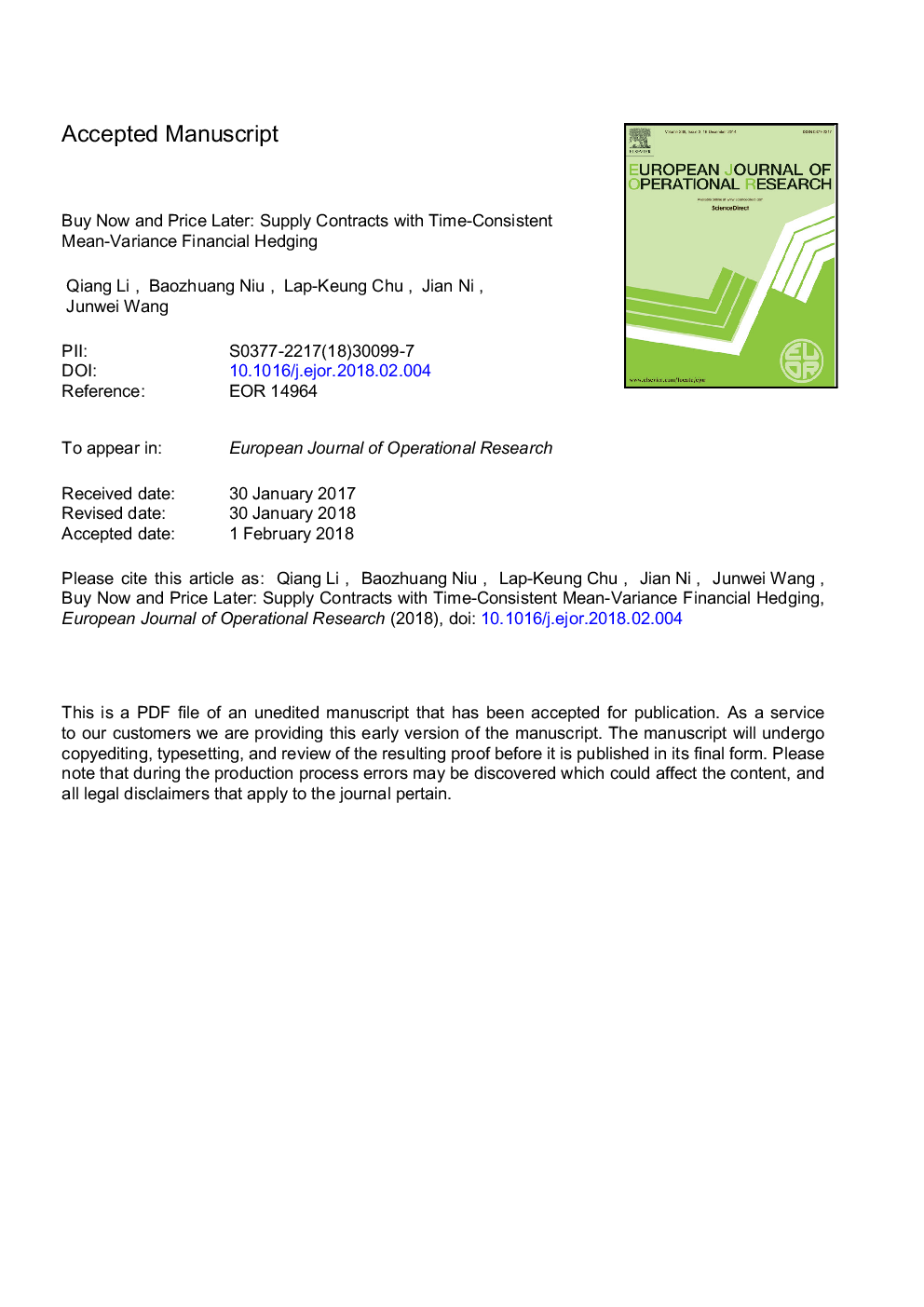| Article ID | Journal | Published Year | Pages | File Type |
|---|---|---|---|---|
| 6894825 | European Journal of Operational Research | 2018 | 45 Pages |
Abstract
We consider a two-stage supply chain comprising one risk-neutral manufacturer (he) and one risk-averse retailer (she), where the manufacturer procures consumption commodities in spot market as major inputs for production and sells the final products to the retailer. The retailer then sells the final products to the market at a stochastic clearance price. We investigate a flexible price contract that allows the manufacturer to determine the product wholesale price, and the retailer to determine the order quantity, based on the future spot price of consumption commodities. Compared with the simple wholesale price contract, a win-win situation can be achieved under the flexible price contract when the manufacturer's postponed processing cost is lower than a threshold. However, under this flexible price contract the retailer may suffer from the commodity price volatility, even if she does not procure the commodities directly. We further investigate how the risk-averse retailer conducts mean-variance financial hedging by purchasing consumption commodity futures contracts. We formulate the problem using a dynamic programming model and derive a closed-form time-consistent financial hedging policy. Through numerical experiments, we show that the commodity price risk from the manufacturer to the retailer is effectively mitigated with the hedging, and the benefits of the flexible price contract are maintained.
Related Topics
Physical Sciences and Engineering
Computer Science
Computer Science (General)
Authors
Li Qiang, Baozhuang Niu, Chu Lap-Keung, Ni Jian, Wang Junwei,
